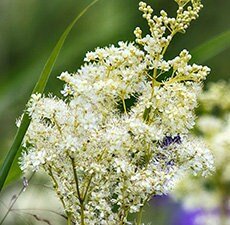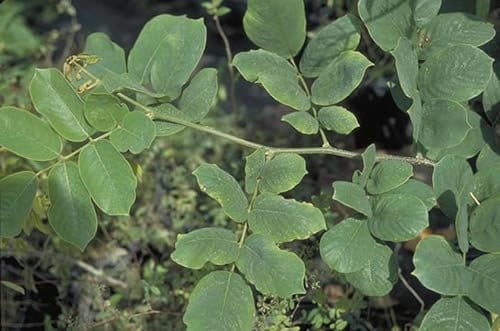Passionflower Tincture
Passionflower
Botanical Name: Passiflora incarnata
Passionflower is well known for its ability to reduce anxiety and depression. It's true that this is a powerful herb for mental health! It has a mild hypnotic effect as well as a mild sedative effect. Passionflower helps to reduce pain and is an antispasmodic, making it helpful for reducing migraine and headache pain, digestive pain, and cramping. Passionflower can also help with coughing, asthma, epilepsy, and dysmenorrhea.
As a mild sedative, it will serve well those that tend to have insomnia stemming from worry, overwork, and disturbed sleep patterns. Although it may help with insomnia, it is not one to make you drowsy throughout the day as it has a mild effect and the effect mainly comes down to quieting the mind.
Passionflower is a GABAminergic – showing to inhibit monoamine oxidase (MAO), thereby protect against the breakdown of neurotransmitters, and bind to benzodiazepine sites on GABA receptors, which ultimately may be helpful for withdrawal issues.
Suggested Use:
Shake well. Take 1-3 mL (dropperfuls), 2-3 times a day, or as needed.
Those who are sensitive to the taste of herbal extracts, I recommend adding the dosage to a tablespoon or so of water or juice.
This product is not intended to treat, mitigate, prevent, diagnose, or cure any serious disease or medical condition. Always make sure to check with your doctor or a qualified physician to see if this is right for you and that it isn’t contraindicated with any other substances you take. This statement has not been evaluated by the Food and Drug Administration. As an herbalist at Dark Moon Botanicals & Plant Witch Academy, I take no responsibility for the personal decision you make using this herb. Always consult a doctor or health care physician before using new herbal products.
Passionflower
Botanical Name: Passiflora incarnata
Passionflower is well known for its ability to reduce anxiety and depression. It's true that this is a powerful herb for mental health! It has a mild hypnotic effect as well as a mild sedative effect. Passionflower helps to reduce pain and is an antispasmodic, making it helpful for reducing migraine and headache pain, digestive pain, and cramping. Passionflower can also help with coughing, asthma, epilepsy, and dysmenorrhea.
As a mild sedative, it will serve well those that tend to have insomnia stemming from worry, overwork, and disturbed sleep patterns. Although it may help with insomnia, it is not one to make you drowsy throughout the day as it has a mild effect and the effect mainly comes down to quieting the mind.
Passionflower is a GABAminergic – showing to inhibit monoamine oxidase (MAO), thereby protect against the breakdown of neurotransmitters, and bind to benzodiazepine sites on GABA receptors, which ultimately may be helpful for withdrawal issues.
Suggested Use:
Shake well. Take 1-3 mL (dropperfuls), 2-3 times a day, or as needed.
Those who are sensitive to the taste of herbal extracts, I recommend adding the dosage to a tablespoon or so of water or juice.
This product is not intended to treat, mitigate, prevent, diagnose, or cure any serious disease or medical condition. Always make sure to check with your doctor or a qualified physician to see if this is right for you and that it isn’t contraindicated with any other substances you take. This statement has not been evaluated by the Food and Drug Administration. As an herbalist at Dark Moon Botanicals & Plant Witch Academy, I take no responsibility for the personal decision you make using this herb. Always consult a doctor or health care physician before using new herbal products.
Passionflower
Botanical Name: Passiflora incarnata
Passionflower is well known for its ability to reduce anxiety and depression. It's true that this is a powerful herb for mental health! It has a mild hypnotic effect as well as a mild sedative effect. Passionflower helps to reduce pain and is an antispasmodic, making it helpful for reducing migraine and headache pain, digestive pain, and cramping. Passionflower can also help with coughing, asthma, epilepsy, and dysmenorrhea.
As a mild sedative, it will serve well those that tend to have insomnia stemming from worry, overwork, and disturbed sleep patterns. Although it may help with insomnia, it is not one to make you drowsy throughout the day as it has a mild effect and the effect mainly comes down to quieting the mind.
Passionflower is a GABAminergic – showing to inhibit monoamine oxidase (MAO), thereby protect against the breakdown of neurotransmitters, and bind to benzodiazepine sites on GABA receptors, which ultimately may be helpful for withdrawal issues.
Suggested Use:
Shake well. Take 1-3 mL (dropperfuls), 2-3 times a day, or as needed.
Those who are sensitive to the taste of herbal extracts, I recommend adding the dosage to a tablespoon or so of water or juice.
This product is not intended to treat, mitigate, prevent, diagnose, or cure any serious disease or medical condition. Always make sure to check with your doctor or a qualified physician to see if this is right for you and that it isn’t contraindicated with any other substances you take. This statement has not been evaluated by the Food and Drug Administration. As an herbalist at Dark Moon Botanicals & Plant Witch Academy, I take no responsibility for the personal decision you make using this herb. Always consult a doctor or health care physician before using new herbal products.






